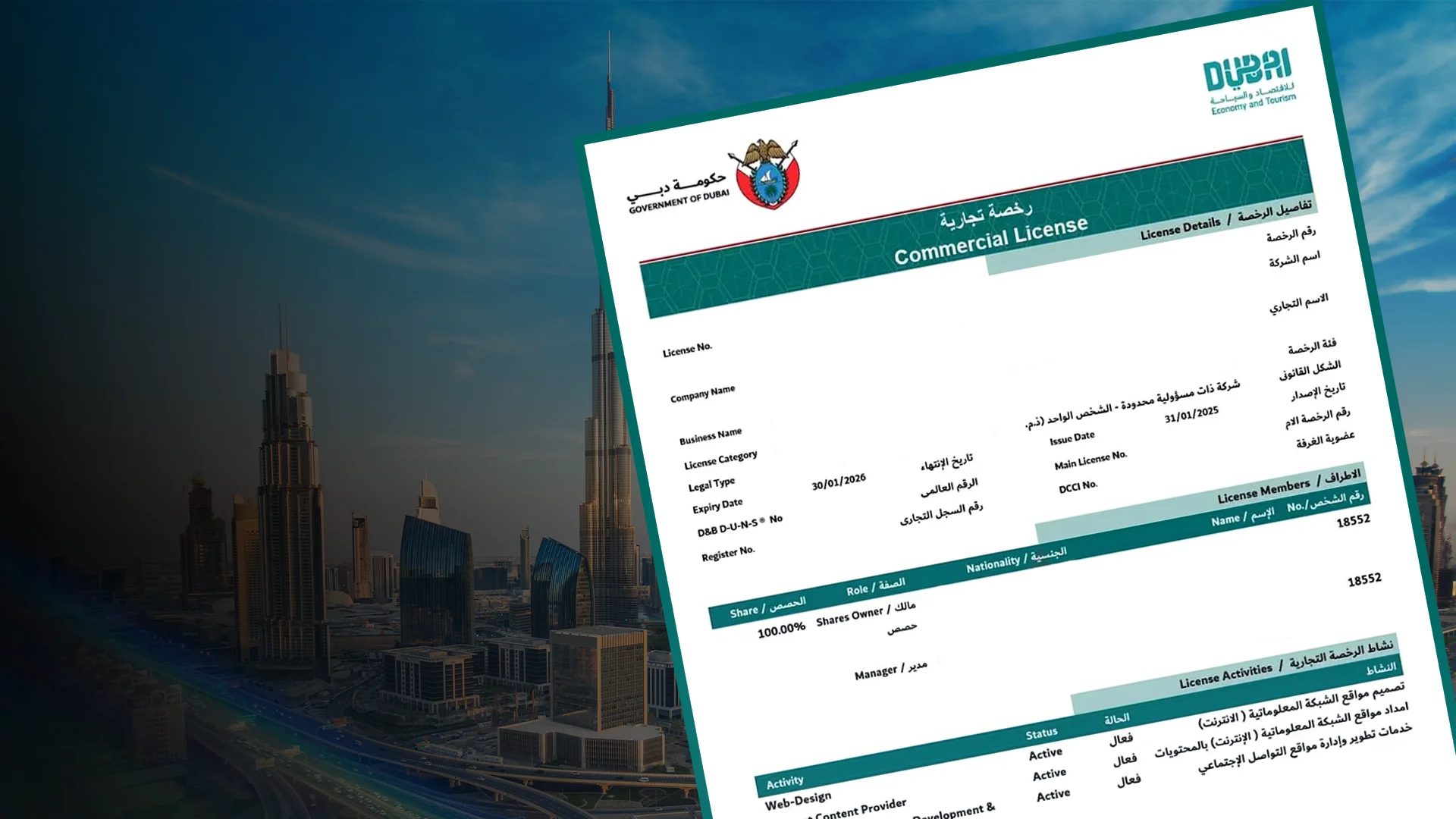
Topic Summary
1. 100% Corporate Tax Exemption
Companies established in Meydan Free Zone enjoy complete exemption from corporate tax on their profits for a predetermined period, enabling maximised reinvestment potential and enhanced profitability.
2. No Personal Income Tax
Shareholders and employees of Meydan Free Zone companies are not subject to personal income tax, ensuring that earnings remain intact and contributing to a more attractive compensation package.
3. Zero Import and Export Duties
Trading companies within the free zone benefit from exemption on customs duties for goods imported into or exported from the UAE, reducing overall operational costs significantly.
4. Full Repatriation of Profits and Capital
Businesses can transfer their entire profits and capital abroad without restrictions, providing flexibility and ease in managing international investments and finances.
5. Exemption from Value Added Tax (VAT) on Free Zone Business Activities
Many business activities conducted within Meydan Free Zone qualify for VAT exemption, subject to compliance with UAE VAT regulations, resulting in lower indirect tax expenses.
If you're launching or expanding a business in the UAE, chances are you've come across the term “free zone” more than once — often followed by phrases like “zero tax” or “easy setup.”
Sounds great, right?
But what does that actually mean when it comes to your costs, your growth, and what you get to keep at the end of the year?
Setting up a free zone company in Dubai unlocks a long list of financial advantages: no personal income tax, potential 0% corporate tax, full profit repatriation, and fewer bureaucratic hurdles.
It’s not just about paying less. It’s about removing friction, protecting your margins, and scaling with confidence.
Let’s break down exactly how the tax benefits in the UAE can give your business a serious edge, especially when you build it inside a Dubai free zone.
Explore Licensing Options With Meydan Free Zone
The Main Tax Benefits at Meydan Free Zone
Dubai free zone tax benefits were designed with entrepreneurs in mind, and nowhere is that more obvious than in the way taxes work.
For starters, you won’t pay any income tax in Dubai — not on your salary, not on dividends, not on business profits.
That alone makes Dubai one of the most attractive places in the world to build wealth while running your business.
Then there’s corporate tax in the UAE. While the UAE has introduced a 9% rate on business profits, a free zone company in Dubai that meets specific conditions can still benefit from a 0% rate on qualifying income.
That’s a massive advantage for businesses that deal with clients outside the UAE or operate entirely within the free zone ecosystem.
You also have full freedom to move your capital and profits, there are no restrictions or withholding taxes when sending earnings back home.
For trading businesses, Dubai’s free zones offer another edge: goods moved within designated zones aren’t subject to customs duties, which makes the supply chain leaner and margins stronger.
If your business qualifies under the Qualified Free Zone Person (QFZP) status in a Qualified Free Zone like Meydan, you’re looking at a setup that’s not only cost-effective but designed for long-term growth — where every dirham saved is a chance to reinvest, expand, and scale on your terms.
Free Zone vs Mainland vs Meydan Free Zone: The Better Deal
Let’s be real — both setups offer advantages. But from a tax perspective, free zones come out ahead for most startups and SMEs.
Understanding Corporate Tax UAE
In 2023, the UAE introduced a federal corporate tax — a 9% levy on business profits that exceed AED 375,000. At first glance, that might sound like the end of Dubai’s tax-free status. But for companies based in free zones, the story is very different.
The UAE government made it clear that qualifying free zone company in Dubai setups can continue to enjoy a 0% corporate tax rate, provided they operate within certain boundaries.
So, who qualifies?
If your company earns what’s defined as “qualifying income” — for instance, revenue generated from clients outside the UAE or from other free zone businesses — then you’re in the clear.
The moment you start earning from the mainland, though, things get more complicated.
Unless that income is carefully structured or separated through a designated entity, it could be taxed at the standard 9%.
These aren’t just technicalities; they are part of the UAE’s commitment to global transparency and tax compliance.
Corporate Tax Registration UAE: A Must for All
Corporate tax registration in Dubai isn’t optional. It’s a legal requirement for every business, regardless of where it’s based or how much it earns.
Whether you’re operating from a free zone or the mainland, whether you’re a multinational or a solo consultant, even if your profits qualify for 0%, you still need to register.
That includes new businesses, freelancers, and solopreneurs.
The UAE’s tax system is built for transparency and global alignment, and corporate tax registration in the UAE is step one.
The good news?
If you’re working with a digital-first zone like Meydan Free Zone, this process is integrated from the beginning.
Our team supports you — from documentation to year-round compliance. When you launch with Meydan Free Zone, corporate tax registration in Dubai becomes frictionless.
Income Tax in Dubai: What Doesn’t Exist Matters Too
One of the biggest reasons entrepreneurs, remote workers, and global founders choose the UAE is the absence of personal income tax.
That’s not a loophole or a temporary benefit — it’s a foundational policy.
Whether you’re drawing a salary, collecting dividends, or cashing out from capital gains, that income is entirely yours.
This means your personal savings grow faster, your investments go further, and your ability to reinvest in your business is significantly stronger.
In practical terms, this isn’t just a tax advantage — it’s a wealth-building engine that few countries can match.
Qualifying for 0% Meydan Free Zone Tax Benefits
Getting that 0% corporate tax rate is a win.
Keeping it is even more important.
To stay compliant under the Qualified Free Zone Person (QFZP) framework, your business must tick two boxes:
- Qualifying income — revenue from overseas clients or other free zone businesses.
- Financial compliance — accurate books, timely filings, and full adherence to UAE corporate tax for mainland and free zone rules.
Meydan Free Zone makes all the difference because we are a Qualified Free Zone. Businesses that are set up in Meydan Free Zone can enjoy a 0% corporate tax rate on qualifying income, as long as they meet the specific conditions set under the UAE’s corporate tax regulations.
We ensure your business stays eligible for the 0% rate through smart setup, integrated compliance, and personalised support.
FAQs
1. Can I repatriate profits from a Dubai free zone company?
Absolutely. Dubai allows full capital and profit repatriation with no restrictions or withholding tax.
2. Do Dubai free zone companies pay corporate tax?
Not if they meet Qualified Free Zone criteria. Income from outside the UAE or other free zones may still be taxed at 0%. Mainland sales may trigger the 9% corporate tax.
3. Is corporate tax registration mandatory for free zone companies?
Yes. Every business, even those eligible for 0%, must complete corporate tax registration in the UAE.
4. Is income tax in Dubai applicable to individuals?
No. Dubai does not impose personal income tax, making it ideal for entrepreneurs, freelancers, and remote workers.
5. What is the UAE corporate tax rate in 2025?
Corporate tax is 0% on profits up to AED 375,000 and 9% on anything above. Free zone companies may continue enjoying 0% if they qualify.
6. Can a free zone company do business in the UAE mainland?
Yes, but only through licensed mainland distributors or by obtaining special permits. Direct sales without structure may impact tax status.
7. Do I need to file taxes in Dubai as a freelancer?
If you're registered in a free zone, yes — even if your liability is 0%. Filing is mandatory to stay compliant.
8. What’s better, free zone or a mainland setup for taxes?
Free zones offer more favourable tax treatment, especially for startups and global-facing businesses. Mainland allows direct local trade but comes with 9% tax once thresholds are met.































